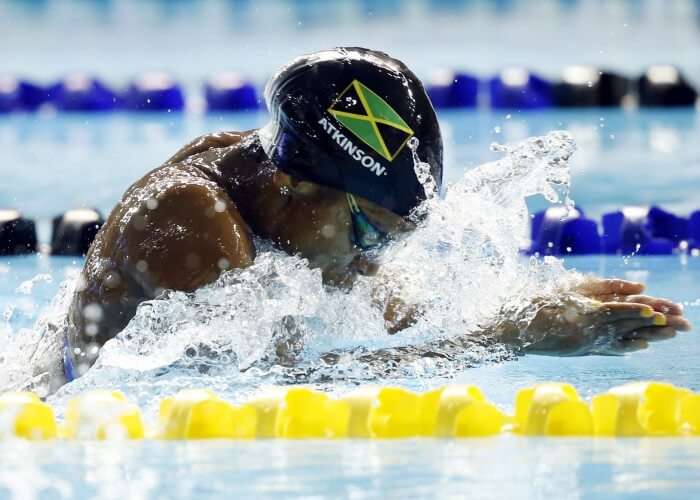Alice Dearing Looking Forward To The Day When Black Is No More Needed Than White Before ‘Swimmer’
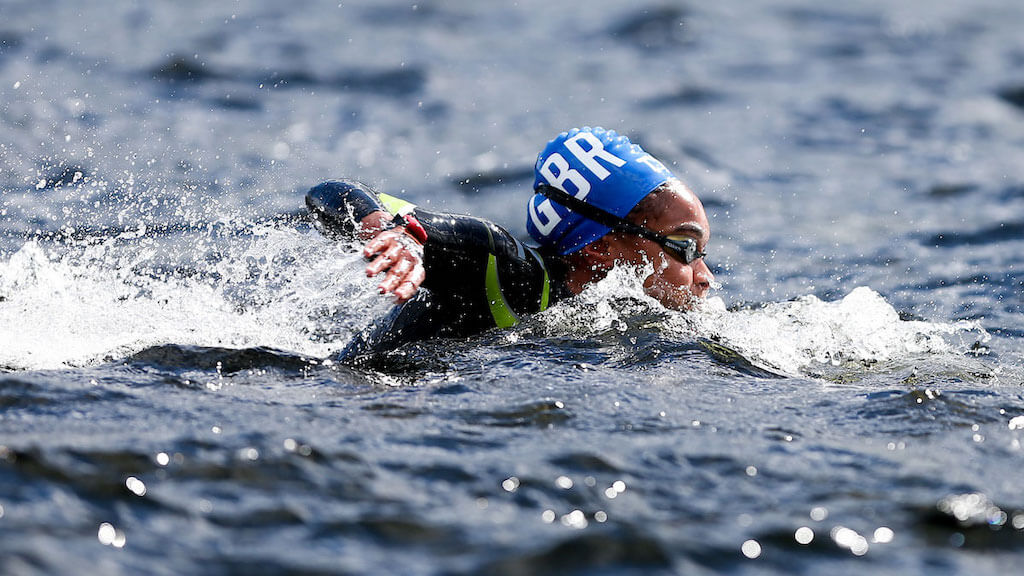
Alice Dearing is many things, including the stark fact that she is only the second black woman to swim for Britain after Achieng Ajulu-Bushell. Then there’s this:
She surprised herself by speaking out about her own experience of racism in swimming, she advocates greater diversity in the sport.
She is a co-founder of the Black Swimming Association whose aim is to highlight swimming as an essential life skill and to encourage participation as well as prevent drowning in black and minority ethnic communities.
She has the potential to become the first black woman to represent Great Britain in the water at the Olympics: the 2016 world junior open water champion will attempt to negotiate the qualifier in Fukuoka, Japan, next year, with Danielle Huskisson also vying to fill the one slot available for British women.
Dearing is steeped in knowledge of the sport and the achievements of the likes of Simone Manuel and Alia Atkinson. So too Ajulu-Bushell in Britain.
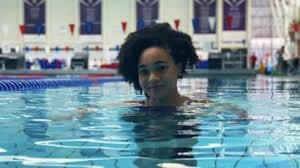
Alice Dearing: Photo Courtesy: Instagram alicedearingx
Manuel became the first black woman to win an Olympic swimming title when she tied for gold with Penny Oleksiak in the 100 free at Rio 2016. Dutch woman Enith Brigitha might have been the first black Olympic champion back in 1976 but she took bronze behind two East Germans fuelled by Oral Turinabol and State Plan 14:25.
Atkinson was the first black woman to claim a FINA world title when she took gold in the 100m breaststroke at the 2014 World Short-Course Championships in Doha.
Ajulu-Bushell became the first black woman to represent Britain in the pool when the breaststroke specialist competed at the 2010 European Championships and the Commonwealth Games later that year before retiring in 2012.
Dearing pointed to their strength as both athletes and people, no hurdle too high to overcome, saying:
“The way I look at it, I think they just swam. And I know that sounds really obvious and a dull answer but they didn’t let anything get in the way of them swimming.
“They probably overcame some form of racism at some point potentially, I don’t know.
“Speaking from my personal experience, I have had racism within swimming, at very few and isolated points.
“I don’t know if that happened to them but they have [potentially had] cultural and stereotypal issues within their swimming career but they just got in and swum and became a swimmer.
“I think that is the beauty of it: in some cases they don’t want to be seen as the black swimmer or a black swimmer.
Photo Courtesy: Erich Schlegel/USA Today Sports Images
“I know they are but they are just swimming and I think that is what is so nice about it, they’re just part of the sport instead of isolating yourself in any sense.
“I know it sounds hypocritical coming from me but that is how I view it sometimes – I am a swimmer and I happen to be a black woman as well and they are two things that can come together well.”
Rewind to 26 July 2019 and the women’s 100 free final at the World Championships, Gwangju.
Manuel had squeaked in with Britain’s Freya Anderson in joint seventh by 0.12secs and would start in lane one.
Many eyes were on Cate Campbell and Sarah Sjostrom in the centre lanes but it was the American who won from the outside lane, dominating from start to finish to set a new national record of 52.04.
Manuel was the first US woman to win the 50-100 double at world titles and became the first female swimmer to take home seven medals from a single world championships.
Dearing was watching on and said:
“I think swimmers in general are quite quiet on the scene until the Olympics roll around and then that’s when they seem to become household names for a few months before other sports pick back up.
“I always think Simone is a bit under-rated in that sense because she is Olympic champion.
“Incredible. To do that from lane one in a 100 free – I can kind of justify it if it’s a distance event because that is sometimes very much mental and how hard can I push myself – but the 100 free is an out-and-out race.
“The fact there is someone out there doing something like that showing anybody can achieve these things – yeah, it’s cool. I have always been a big fan of hers.”
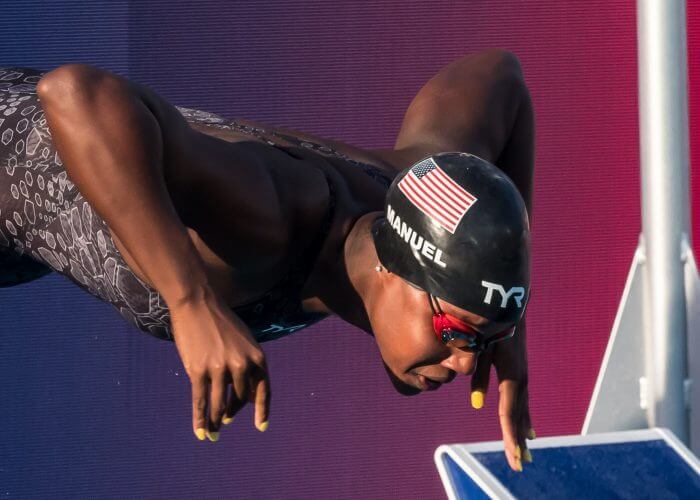
Photo Courtesy: Peter H. Bick
She added:
“Regardless of the fact she is a black woman she is an incredible swimmer. To say something like she is an incredible swimmer and then it is even more special because she is black sometimes it’s kind of like – yeah, well black people can swim, we don’t always have to give so much relevance to race.
“But then the reason I think we need to give relevance to race – like a double-edged sword – we need the representation to be there and be visible so people can get into the sport.
“I really hope one day it gets to the point where we don’t have to refer to a swimmer’s race if they’re not white.
“We don’t have to say ‘oh Alice Dearing, the only black swimmer for Britain’ because it just doesn’t matter any more.
“That is what I want it to get to.”
Dearing On Her Own Experiences And Journey On To Centre Stage
Dearing said earlier this year: “If I can inspire one little black girl or one little black boy, anybody, to get into the water and give it a try, I’ve done myself proud, genuinely. That is the aim in it all.”
At the same time she recalled when she was subject to racist abuse aged 17 by a coach who called her “a skinny n-word”. She was prepared to “laugh it off” only for her own coach to intervene.
So too does she look back at the stereotyping she was subject to, saying:
“I remember parents coming up to my mum and saying ‘we didn’t expect Alice Dearing to look like that.’
“We just always thought it was because I was small and over the years I have thought about it more and more and I was like the amount of people that said that to my mum and that said to me there is no way it was because I was small.
“I was a nine-year-old girl – I think I’m meant to be small!
“It got to the point – we just laughed it off – but the more I thought about it I was like I think black parent, mixed-race daughter turned up to open meets and especially with a very white-sounding name like Alice Dearing.
“Probably looking at the programme and then seeing me behind the blocks and then me talking to my mum later on and just being shocked.”
“It’s very interesting because I come from a very diverse area, I come from Birmingham. Suddenly you go to swimming pools and swimming clubs and that diversity just gets washed out. Obviously there are the cultural stereotypal issues behind it – but I was always confused by it.”
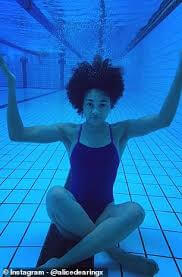
Alice Dearing: Photo Courtesy: Instagram alicedearingx
Dearing’s journey into the spotlight has been a gradual one. For some time she had wanted to address the lack of diversity and stereotyping and to challenge long-held perceptions that had been reinforced over the years, using her platform to inform and inspire.
Encouraged by her boyfriend – ex-Loughborough swimmer Rob Griffiths – she reached out to Accura on Twitter and they began speaking by phone. They were joined by Jones and Obe and they launched the BSA in March 2020 in partnership with Swim England.
It has been quite the whirlwind for Dearing who said:
“It’s been kind of crazy. I have had my name in so many different places and different conversations that I never expected it to be in or for me to have the reception or relevance that I currently have.
“It has taken me a few weeks to get used to it and come to grips with it.
“The Blacks Live Matter movement has really picked up steam and people in swimming are looking for ways in how they can improve diversity and put forward those people who are championing those issues and obviously I’ve had a lot of that going on.
“So it’s been really exciting but also really daunting and a bit terrifying at some points because I feel like I am speaking for a certain populus or a certain demographic.
“I don’t want to screw up or anything – I just want to display that swimming is for absolutely everybody and not just white people or black people but everybody and it’s such a good sport and activity to be in.
“So it’s been quite terrifying is the short answer.”
The reception has been overwhelmingly positive from both the public and fellow swimmers.
“I am quite fortunate: I think I’ve had three messages or replies to tweets when I’ve been like okay that’s childish. Or you’re missing the point here.
“But they’ve never been personal attacks on myself; more attacks like – aren’t you being racist by singling out black people?
“I always think you’ve completely missed the point because black people and ethnic minorities in this sense need help and encouragement to get into the water because it has literally been decades of repetition of lies such as we are too heavy to swim, swimming is not a sport for us – we go into athletics, we go into basketball and football.
“Just to change black people’s mindset around these issues is a challenge we are looking to tackle. The reason there isn’t a white swimming association is that there doesn’t need to be one in the sense white people haven’t been told over decades and generations that swimming isn’t for them or they are too heavy to swim.
“I have been quite lucky: I have always expected more but maybe the way I am portrayed doesn’t lead me to being trolled I like to think.”
She adds:
“The way I have understood racism is I don’t want to become a victim of it if that makes sense: I don’t want to give it any power or any relevance in my life.
“When I have faced it I’ve always tried to brush it off and not let that define me because that is nothing to do with me.
“The words that someone has chosen to use about me – it’s their problem, it’s not mine. I just never wanted to make myself a victim of any of the horribleness that might happen. I am the one losing out then – I’m the one who is making myself weaker rather than just trying to get over it.
“It’s all serious don’t get me wrong but I haven’t had hate crimes done towards me or anything like that so I suppose it is quite easy for me to say I don’t let myself become a victim.”
Dearing’s Swimming Odyssey
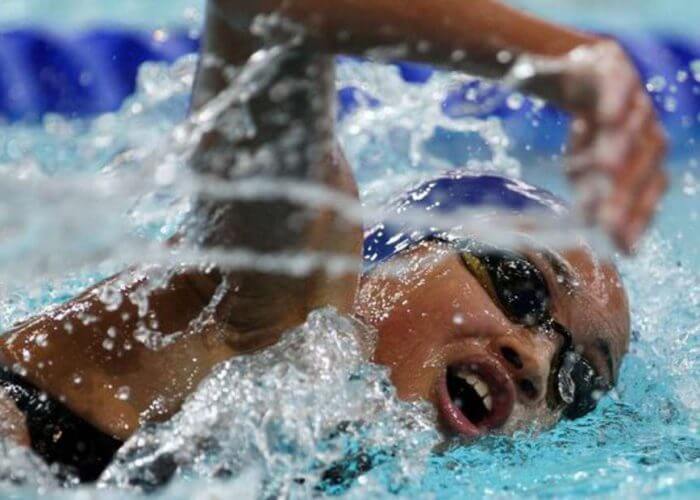
Alice Dearing – Photo Courtesy: British Swimming
Dearing’s own swimming odyssey began when she joined Oldbury Swimming Club in her hometown of Birmingham in the English midlands aged eight with brother Joseph who was five years her senior.
The pair “fell in love with it” and would watch any swimming event that was televised, record it and then rewatch it all over again.
The youngster’s hero was sprint specialist Alshammar, the Swedish triple Olympic medallist and now the veteran of six Games.
“Therese Alshammar: I absolutely loved her, she was my idol. Whenever she came out she was always smiling and she just looked so happy to be racing and to be competing. She always had this nice aura about her I thought.
“It’s really funny because I ended up going the complete opposite end of the swimming spectrum from her. She was a 50, 100 specialist and I am doing 10k. But I always say her because I have always looked up to her. She has always seemed like a really nice person.”
Dearing made good progress, her brother going into coaching having started older, and worked her way to the elite level and made her GB debut aged 16.
In 2014 she was fourth in the 7.5km at the world open water juniors before claiming bronze a year later at the European juniors, making her senior debut at the World Championships in Kazan, Russia, that same summer where she was 23rd over 5km.
Then in 2016 she became the world junior open water champion following a sprint finish in Hoorn, the Netherlands.
Since then she has appeared at two more World Championships in Budapest and Gwangju – fifth in the mixed 5k relay at the former in 2017 her best result so far – as well as 12th at the 2018 European Championships in Glasgow, Scotland.
And next year, possibly the Olympics in Tokyo where Dearing would be the first black female swimmer to represent Team GB.
To make it Dearing must be among the nine highest-placed eligible swimmers and also be ahead of Huskisson.
To her embarrassment, some articles have stated she has already booked her spot for Tokyo 2020 and by so doing has written her own entry into British history books.
Speaking with humility and modesty and an appreciation for the magnitude of having made an Olympics, she said:
“It’s difficult because people are like sometimes ‘Olympian Alice Dearing’ and I am like no, no, no, no. I’m not. I’m attempting to become an Olympian.
“I remember the first time I found that really difficult because as swimmers you are very humble in a sense, you do not put yourself in a position that you are not at yet.
“I don’t want to be referred to as an Olympian before I actually become an Olympian.
“I haven’t done it so I wouldn’t want that title in any way to be attached to my name yet.”
Advertising: Shop At Swim360




